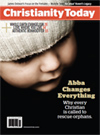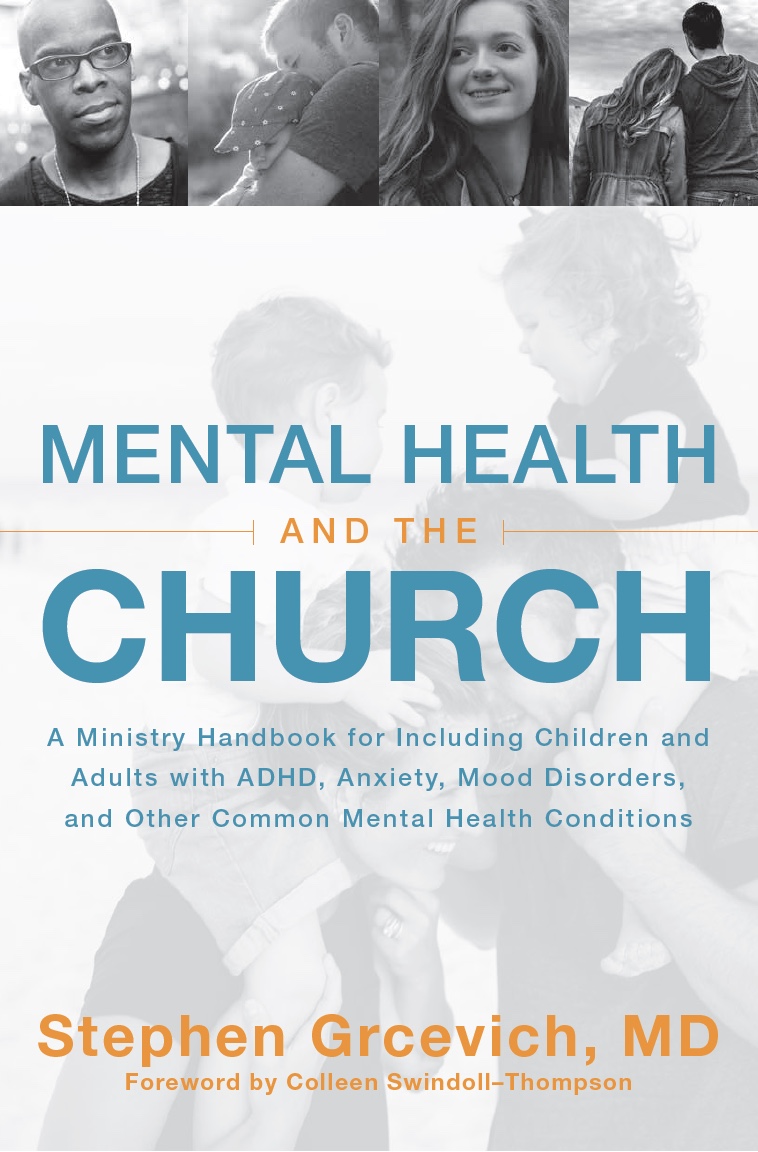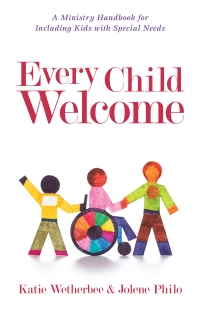 Is there anyone here who, planning to build a new house, doesn’t first sit down and figure the cost so you’ll know if you can complete it? If you only get the foundation laid and then run out of money, you’re going to look pretty foolish. Everyone passing by will poke fun at you: ‘He started something he couldn’t finish.’
Is there anyone here who, planning to build a new house, doesn’t first sit down and figure the cost so you’ll know if you can complete it? If you only get the foundation laid and then run out of money, you’re going to look pretty foolish. Everyone passing by will poke fun at you: ‘He started something he couldn’t finish.’
Luke 14:28-30 (MSG)
The movement among churches to embrace adoption as an important ministry initiative has clearly gone mainstream, as evidenced by the cover story and feature articles in July’s Christianity Today. It’s good that the church is stepping up to address the need. The church was designed to be the original “safety net” for the most vulnerable in society. We’re called to “look after widows and orphans in their distress.” The church is best positioned to help break the multigenerational patterns of dysfunctional behavior that contribute to unintended pregnancies, trauma and abuse that result in kids without families to care for them. Families from the church provide an ongoing witness to the love of Jesus Christ that meets an immediate need while challenging stereotypes about Christians and Christianity in the larger society. Children who have been adopted are more likely to attend church on a weekly basis than non-adopted children.
Here’s the question on the table…Serving the needs of children available for adoption and kids in the foster care system because of abandonment, neglect or abuse are areas in which the church is called. Is the church prepared to provide the resources and supports families called to this ministry will need to maintain their current level of church involvement and effectively shepherd their kids in the Christian faith?
One of my priorities for Key Ministry as we move forward is to expand the scope of resources available to share with churches seeking to respond to the need for adoptive homes. Key Ministry developed as an extension of a large church’s attempts to meet the needs of a highly committed group of church families who were struggling in the aftermath of adopting kids from Eastern European orphanages. Some of the realities churches need to consider when planning adoption initiatives include:
- Children adopted in infancy are twice as likely to experience encounters with mental health professionals compared to non-adopted children
According to a paper in the journal Pediatrics, adopted children are more likely than biological children to:
- Have difficulties with emotions, concentration, behavior, or getting along with others.
- Have a learning disability, developmental delay, or physical impairment
- More than twice as likely as biological children to have special health care needs
- More likely to have repeated a school grade
- Less likely to have a very close relationship with the parent
- Parents of adopted children are more likely than parents of biological children to have felt that the child is harder to care for than most children
We’re going to be networking with church staff and lay professionals in search of the best possible resources for churches looking to meet the needs of families who adopt. If you’re a leader in children’s ministry or youth ministry, how would your church respond if 10% of your families adopted children with the issues described above? How would that change your programming? What other resources (respite, counseling, financial assistance) would you need to develop just to meet the needs of families you’re already serving?
We also need to consider among “orphans” those children and teens in the foster care system. Here’s a link to statistics on kids in the custody of Cuyahoga County (includes Cleveland, Ohio and inner suburbs).
Kids in foster care often have histories of exposure to abuse and neglect. They often have very complex mental health needs. Dr. Julie Zito from the University of Maryland presented the following data about kids in foster care in Texas in 2004…keep in mind that use of medication has likely increased significantly (corresponding to national trends) since that time. In 2004:
- 37.9% of kids in foster care in Texas were on psychotropic medication, compared to 7.4% of the general population
- 41% of kids in foster care receiving medication were on three or more classes of medication
- 72.5% of foster kids on medication were on at least two different medications.
In the next 12-24 months, I’d like to find a church (or network of churches) willing to develop ministry targeting the needs of families serving in the foster care system in their immediate area.
Families who are called to adopt or serve in the foster care system desperately need to maintain an active participation in the local church. A big part of our job at Key Ministry in the years ahead will be to resource churches to respond to the challenges of Christian families who are meeting the needs of the most vulnerable children among us.
Last revised April 29, 2012





As a parent who adopted out of foster care in a large church with many national and international adoptive families and foster families, I love this idea. We need help in knowing how to reach these orphans and the people who are taking them into their homes.
LikeLike
Jon,
What church do you belong to, and what do they do that adoptive parents in the church find most helpful?
LikeLike
Sherwood Oaks Christian Church in Bloomington, IN. We are not really doing anything at the moment. Several people (staff) are starting to talk about the need. I am on staff and want to be involved in making a difference in both this realm and in reaching out to kids and families with disabilities. We do some for the second group but know we could do more.
LikeLike
Hi Jon,
Bloomington is a great little town. I did a couple of roundtables for physicians in town about five or six years ago.
Our team is looking at a possible three day road trip to Cincinnati, Louisville and Southern Indiana in January or February. It would be great to meet in person.
Have you had any involvement with Mark 2 Ministries out of Indianapolis? Aaron Scheffler is their point person in Indy. He came to one of our trainings in Cincinnati in September. They’re doing great stuff.
Please let us know what we can do to be of help to your team in meeting the needs in your church and the surrounding community.
LikeLike
Jon, as a parent, I want to thank you for your compassionate interest.
Although, I personally cringe at the distinction of ‘adoption’ vs biological, I understand the issue you are addressing Dr. G, thinking of those families who may find themselves without the needed support. Very ‘cool’ in fact. (I kinda hope no propective foster parents read this blog though or they are likely to be discouraged).
Whether a child is adopted, or in their family of origin, has no bearing on the responsability of the church to minister to them. However, not to recognize the increased needs of a congregation who is known to be growing in adoptive families should certainly get attention. So, in that light I do thank you for providing that attention.
As an adoptive parent, of a child with severe physical & intellectual & sensory disabilities I have never felt that ‘adoption’ was the issue to be focused on. The issue is the needs of children and their families. I guess this is a sensitive issue for me because many times before the adoption was completed I was told that I was not this child’s mother and therefore my concerns for him were rejected. After his adoption, I was told that since it was my choice to adopt a child with special needs I should not expect any support/empathy because I knew what I was getting into. These attitudes have made me sensitive to the distinction between adopted children and biological children. The issue is not whom they were born to, but that they know love & support.
My concern is that parents in the foster/adoption position may get more attention for doing a ‘christian service’ while children with the same needs who live with their biological families get over-looked or rejected as being too needy.
Sorry, I know Dr. G, this is not a problem with you. I just couldn’t help voicing my concerns to others who may be reading. I hope it is not inappropriate of me to do so.
LikeLike
Tammy, I basically agree with all you said. Adopted children have additional needs needs that must be addressed also. I do wish my church was doing more for ALL our kids and their families. We are working towards that. With that needs to be education about the unique needs and challenges of foster and adopted kids.
I understand that the trauma they have been through is shared by many children who have never been removed from their homes. By learning to look for and address the needs of the ‘orphans’ we can also learn to see the needs of our other children also.
We do not make a distinction in our house of our bio child and our 2 adopted children. The adoption was a very big thing in our lives though and cannot be nor should it be ignored. They are all my children and we waited 3 years while the State sorted through their (the State’s not the children’s) issues before we could complete our adoption. It is a major event in our lives and will openly be talked about. We do not raise them differently because they were adopted though.
I would also consider a child in a bad bio home life with both parents present an orphan when it comes to the churches responsibility. We are not ‘off the hook’ just because they have parents.
Sorry it rambles. I don’t have time right now to organize my thoughts. I am not offended by what you said, just wanted you to know I don’t want to leave any child out.
LikeLike
Tammy,
I’m not at all offended by your comments. You raised some great points. To a significant degree, the church has struggled, until recently, with an “out of sight, out of mind” mentality toward families of kids with special needs, regardless of whether the child is biological or adoptive.
I’m optimistic that God is going to use the focus on adoption as missional outreach advanced by churches like Saddleback and North Point to change the hearts of people who believe parents who knowingly adopt or foster kids with special needs are less worthy of their care and support. It’s easier to pass judgment on folks you don’t know as opposed to people you’ve gotten to know in a small group or the helper in your kid’s Sunday school class.
As churches develop services to support families involved with adoption initiatives, I think a lot of eyes will be opened among the folks attending those churches and they’ll be better equipped to recognize families outside the church with similar needs, and take the necessary steps to help those families to feel welcomed and included at church.
LikeLike
ah, yes…that would be great!
LikeLike
Thanks, Steve:
I’m coming late to the conversation – but as the father of 3 adopted children brought into our home in infancy – I appreciate your attention to the subject. My experience is that my wife and I seldom think about the lack of a biological tie – but it seems that our children think about it a great deal. My mother tells the story of my adopted uncle, who though he loved his adopted mother (my grandmother) very much, he never was able to heal the wound of abandonment or answer the question, “why?”
Ultimately, most church people have $20 answers to this million dollar question. It’s deeply spiritual and from what I can see, painful. But to the degree that our local church can address the other issues that seem to so frequently accompany adopted children such as ADHD, mood disorder, attachment issues, substance abuse . . . then perhaps that can buy us a little time to discuss the emotional issues of loss and abandonment.
Thanks to Key Ministry for do just that!
Thanks for all you do, Steve!
Happy New Year.
LikeLike